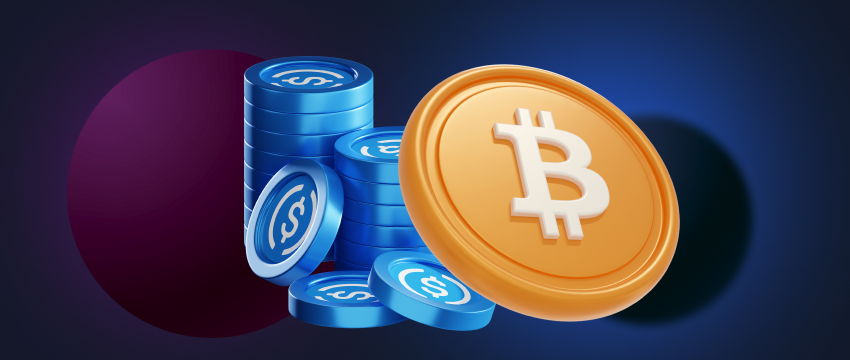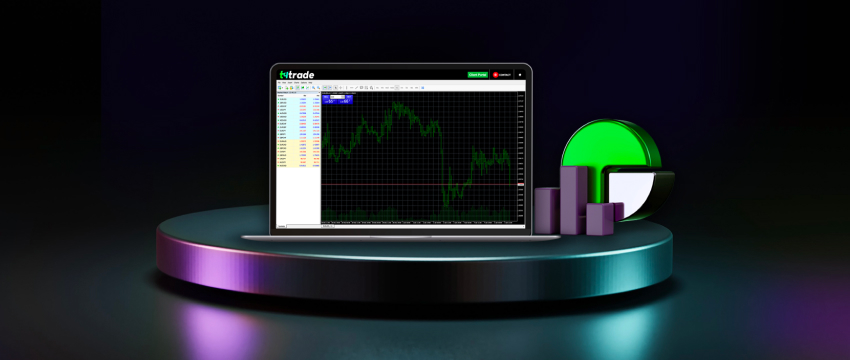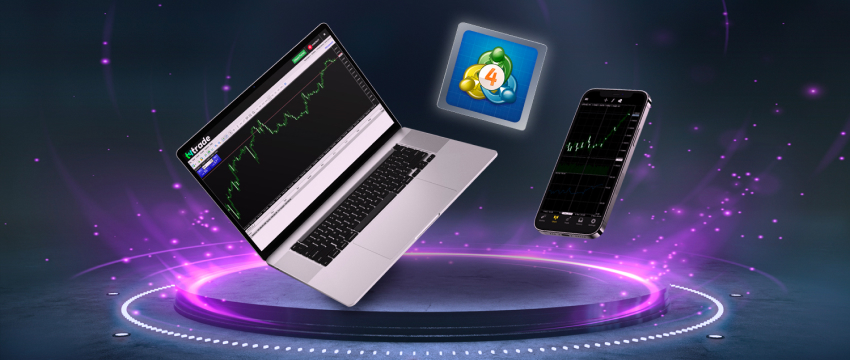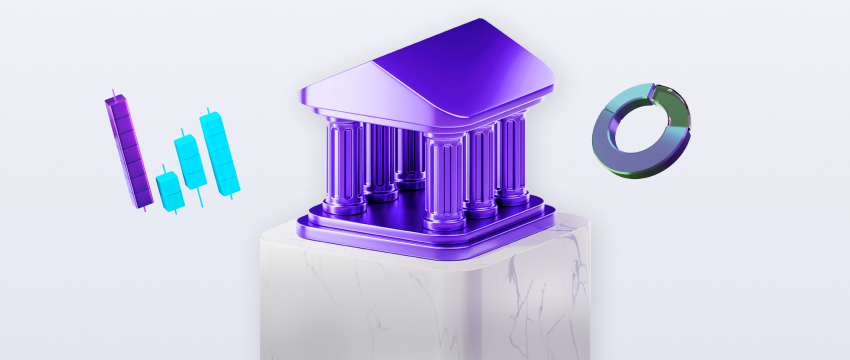There are currently more than 23k different cryptocurrencies in circulation worldwide. Choosing one to trade or invest in can seem overwhelming if you’re only now entering the crypto space. This article will help you become familiar with the 10 popular cryptocurrencies in 2023.
1. Bitcoin (BTC)
Bitcoin is the OG cryptocurrency. Created in 2009, this digital currency runs on the blockchain, a distributed network of computers, and relies on cryptography to keep it secure from fraudsters.
As of 4 July 2023, a single Bitcoin was worth just under $32k, with a market capitalisation of $597 billion.
2. Ethereum (ETH)
Launched in 2015, Ethereum is a decentralised, community platform comprised of financial services, games, social networks, and other apps. Ethereum is programmable which means it can be used to build and deploy dApps (decentralised applications) or smart contracts on its network. Ether is its native cryptocurrency.
As of 5 July, a single Ether was worth just over $1,9k with a market cap of $231 billion.

3. Tether (USDT)
Tether is a blockchain enabled platform that was launched in 2014. It facilitates the use of fiat currencies (e.g., US$, EUR) in a digital way. Tether is also known as a cryptocurrency stablecoin, pegged at 1-to-1 with a matching fiat currency (e.g., 1 USD₮ = 1 USD). Every Tether token is also 100% backed by Tether reserves. For these reasons, Tether is said to offer price stability and is a low volatility solution for traders or investors looking to exit the market.
As of 5 July, a single USDT was worth approximately $1, with a market capitalisation of $83 billion.
4. Binance Coin (BNB)
Binance Coin is the native coin of the BNB Beacon Chain and BNB Smart Chain. BNB was originally based on the Ethereum network and issued as an ERC-20 token, with a total supply of 200 million coins. ERC-20 BNB tokens were eventually swapped with BEP-2 BNB at a 1:1 ratio.
As of 5 July, a single BNB was worth approximately $242, with a market capitalisation of $38 billion.
5. US Dollar Coin (USDC)
USDC is a digital stablecoin, much like Tether. It is a cryptocurrency backed by the U.S. Dollar, typically at a 1-to-1 ratio. Powered by Ethereum, USDC can be used in transactions across the globe. USDC reserve assets are held in segregated accounts in US-regulated financial institutions.
As of 5 July, a single USDT was worth approximately $0,99, with a market cap of $28 billion.
6. XRP (XRP)
Founded in 2011, XRP is the native cryptocurrency of Ripple, and is said to have a total supply of 100 billion tokens. XRP operates on a decentralised, open source blockchain called the XRP ledger. Transactions are handled by RTXP, the Ripple transaction protocol.
As of 5 July, one XRP was worth approximately $0,48, with a market cap of $25 billion.
7. Cardano (ADA)
Cardano is the first blockchain software platform built using scientific methods (Ouroboros proof-of-stake consensus protocol). Like Ethereum, Cardano allows for the development of smart contracts and dApps powered by ADA, its native coin. Cardano has been said to use technology to achieve a sustainable global society and to offer a new basis for the way we work, engage, and create.
As of 5 July, a single ADA was worth approximately $0,29, with a market cap of $10 billion.
8. Dogecoin (DOGE)
Reportedly launched as a joke, Dogecoin has also been referred to as the first “meme coin”, featuring a Shiba Inu as its logo. It is an open-source peer-to-peer digital currency much like Bitcoin and Ethereum. There are no limitations to the number of Dogecoins that can be created but as supply increases, the risk of devaluation rises as well.
As of 5 July, one DOGE was worth approximately $0,06, with a market capitalisation of around $10 billion.
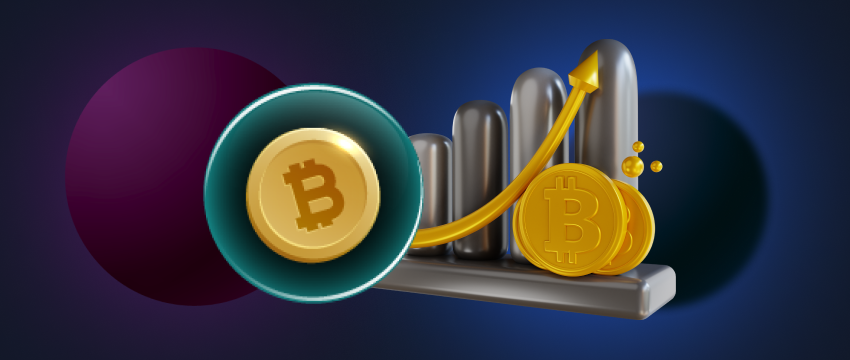
9. TRON (TRX)
TRON is a decentralised blockchain platform and Tronix or TRX is its native cryptocurrency. Founded by a Singaporean non-profit back in 2017, it was initially marketed in the Asian market, but is now renowned across the globe. TRON primarily hosts entertainment applications.
As of 5 July, a single TRX was worth approximately $0,077, with a market capitalisation of some $7 billion.
10. SOLANA (SOL)
Founded in 2017, Solana is another blockchain platform that reportedly processes transactions much faster and charges lower transaction fees in comparison to other rivals like Ethereum. Its native token is the SOL.
As of 5 July, one SOL was worth approximately $19,10, with a market capitalisation of around $8 billion.
What risks are associated with cryptocurrencies?
While having gained notoriety the world over, cryptocurrencies do come with inherent risk which must be properly managed. Cryptocurrencies are regarded as highly volatile and high risk investments. While offering a means to diversify one’s trading or investment portfolio, they are not properly protected by governments because of their decentralised nature. Further, while many have an unlimited supply, cryptocurrencies like Bitcoin are limited to an eventual finite number. In this regard, it is suggested that one conducts proper research, together with constant monitoring of the markets, to ensure you don’t lose all your capital. In addition, while Crypto transactions are typically safe and secure, they do carry scam risk and a crypto account is capable of being hacked, so proper vigilance is key.

In conclusion
The cryptocurrency industry remains an exciting space for global traders and investors. It offers plenty of opportunities to put your trading knowledge and expertise to the test. Although a volatile activity, the crypto market:
- is usually available to trade 24/7
- offers high liquidity trades can be executed quickly and at a lower cost
- provides the ability to go long or short
- offers leverage (cryptocurrency CFD trading is a leveraged product). If opting for leverage, exercise caution as leverage may result in large, unexpected capital losses if not properly monitored or managed.
Before you venture down the road of cryptocurrency trading, ensure you have a well-crafted, fully optimized trading strategy in place to mitigate any drawbacks and to protect yourself from unexpected losses.
Disclaimer: This material is for general informational & educational purposes only and should not be considered investment advice or an investment recommendation. T4Trade is not responsible for any data provided by third parties referenced or hyperlinked, in this communication.
